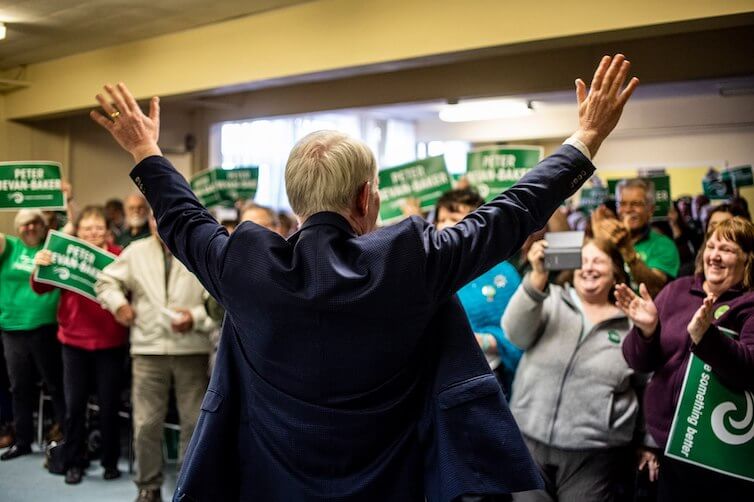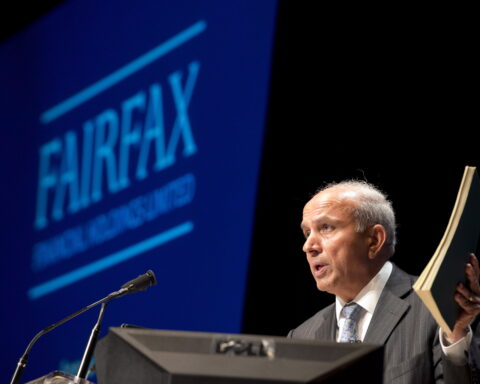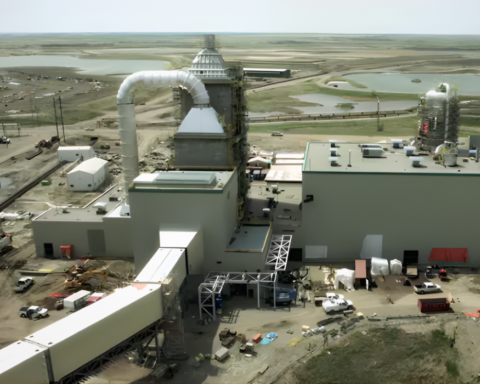If the polling is to be believed, Canada’s smallest province is about to do something big. It may just elect the country’s very first Green Party government.
We won’t know until the votes are counted one day after Earth Day, on April 23rd, but the fact that it’s possible for a Green Party to come close to forming a government in North America is being celebrated by ecologically-guided Canadians across the country. It’s especially encouraging given the string of victories in other parts of Canada by parties that are outright hostile to ecological values, as was the case in this month’s Alberta election.
Peter Bevan-Baker, leader of the Green Party of Prince Edward Island, has described his party’s popularity as “the local expression of a global phenomenon.” The former dentist and nine-time Green Party candidate believes that people around the world are realizing that the political and economic ideas that dominated the last century are not making people’s lives better. After decades of these policies in action, a growing number of voters now believe that their governments have not held up their end of the social contract.
People are desperately looking for something different in their politics. As economist Milton Friedman said, “Only a crisis – actual or perceived – produces real change. When that crisis occurs, the actions that are taken depend on the ideas that are lying around.”
In Prince Edward Island, “change” has always meant going back to the party that you just kicked out of office a few years prior. Never before has a third party been considered a viable option to break the two-party dominance. Then a poll published in 2017 showed Bevan-Baker was the most popular politician on the island, and the Green Party of PEI suddenly became a contender. The number of voters who said that they planned to support the party in the next election ramped up quickly.
After three terms of Liberal government, PEI’s Green Party has positioned itself to be the “something new” that people are looking for. Around the globe, this desire for change has led to the election of political outsiders from every shade of the political spectrum. Last fall, the CAQ party rode that wave to victory in Quebec. In Prince Edward Island, the Greens have been able to capture that energy.
The PEI Green platform emphasizes revitalizing local-scale economies and communities by redirecting government funds towards smaller local businesses and promoting locally grown food and locally produced goods. It plans on expanding healthcare to go beyond prescribing reactive treatments and include “social prescribing” to connect patients to community activities that support wellbeing. The Green belief is that strengthening community programs and the non-profit sector can have some of the biggest effects on a person’s health and security.
The Green worldview is undeniably different than that of Liberal, Conservative, or Social Democrat parties. It’s built on a different set of assumptions about how society, the economy, and the natural world fit together. Instead of seeing “the environment” as a single component within an all-encompassing economy, the Greens see the natural world as the core of everything. Economic activity that degrades the ability of the natural world to sustain humanity is not progress.
All around the world economic growth marches forward and yet indicators of wellbeing don’t improve. Despite this, economic growth at all costs remains the singular focus of much of our economic activity, and politicians tout it as a solution to nearly every problem that we encounter. This is especially relevant in Prince Edward Island. PEI is currently experiencing the highest GDP (gross domestic product) growth rate in Canada, and yet this isn’t translating into a higher quality of life for islanders.
The PEI Green platform calls for a new way of rating the wellbeing of islanders, as well as the performance of the government. One of the possible options could be the Genuine Progress Indicator or GPI. It’s an idea that’s popular in the field of ecological economics and measures over two dozen environmental, social and financial indicators, subtracting any economic activity that has a negative social impact. The GPI has been a lifelong project for Bevan-Baker, who worked with his local Liberal MP in 1997 to develop legislation that would replace the GDP with a GPI. The bill was presented in Parliament but was not pursued by the government at the time.
Green Party of PEI leader Peter Bevan-Baker
Bevan-Baker and his party also plan to introduce a new carbon pricing framework “that can actually achieve the goal of reducing greenhouse gas emissions.” The party is promising a low-interest loan program to promote small-scale solar energy, as well as free transit for those on social assistance and major support for electric vehicles.
A recent Ipsos-Reid survey found that three–quarters of Canadians believe that the government needs to do more to address climate change. Likewise, recent polling has reported that over a third of Canadians “would consider voting for the Green Party of Canada.” Despite this high level of accessible voters, the Green Party of Canada has never garnered more than 8% of the vote in an election.
Canadians have consistently elected governments that are terrified of taking the actions that are necessary to avert catastrophic climate change. They’re afraid because embracing those actions would mean acknowledging that our beliefs about how the economy should work were wrong all along. In the words of American writer Upton Sinclair, “It is difficult to get a man to understand something, when his salary depends upon his not understanding it.”
Greens don’t have this fear, because they’ve been saying we were wrong for decades. Many of the Green Party’s ideas and solutions have strong theoretical backing, developed through the transdisciplinary field of ecological economics, but they’ve rarely had an opportunity to be tested in practice. As people realize that the old solutions aren’t working, Greens may finally be able to convince a large chunk of PEI voters that a different approach is possible.
Prince Edward Island is small. It holds less than one percent of Canada’s population and is the size of a medium-sized city in most other provinces. The effect of the island’s economy on the greater economy of Canada is equally small. But the effect of an elected Green government on the public consciousness of the country could be huge. A win in PEI will show that Green ideas are viable, that Green politicians are electable, and that there’s never been a better time to embrace these ideas and the people who are championing them.
James Marshall is the author of What Does Green Mean?, an upcoming book on the history and ideas of the Green Party in Canada and around the world. He’s a former BC Greens candidate and is currently seeking the Green Party of Canada nomination for Vancouver Centre. James’s father, William, was one of the founders of the federal Green party.








